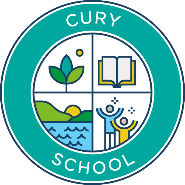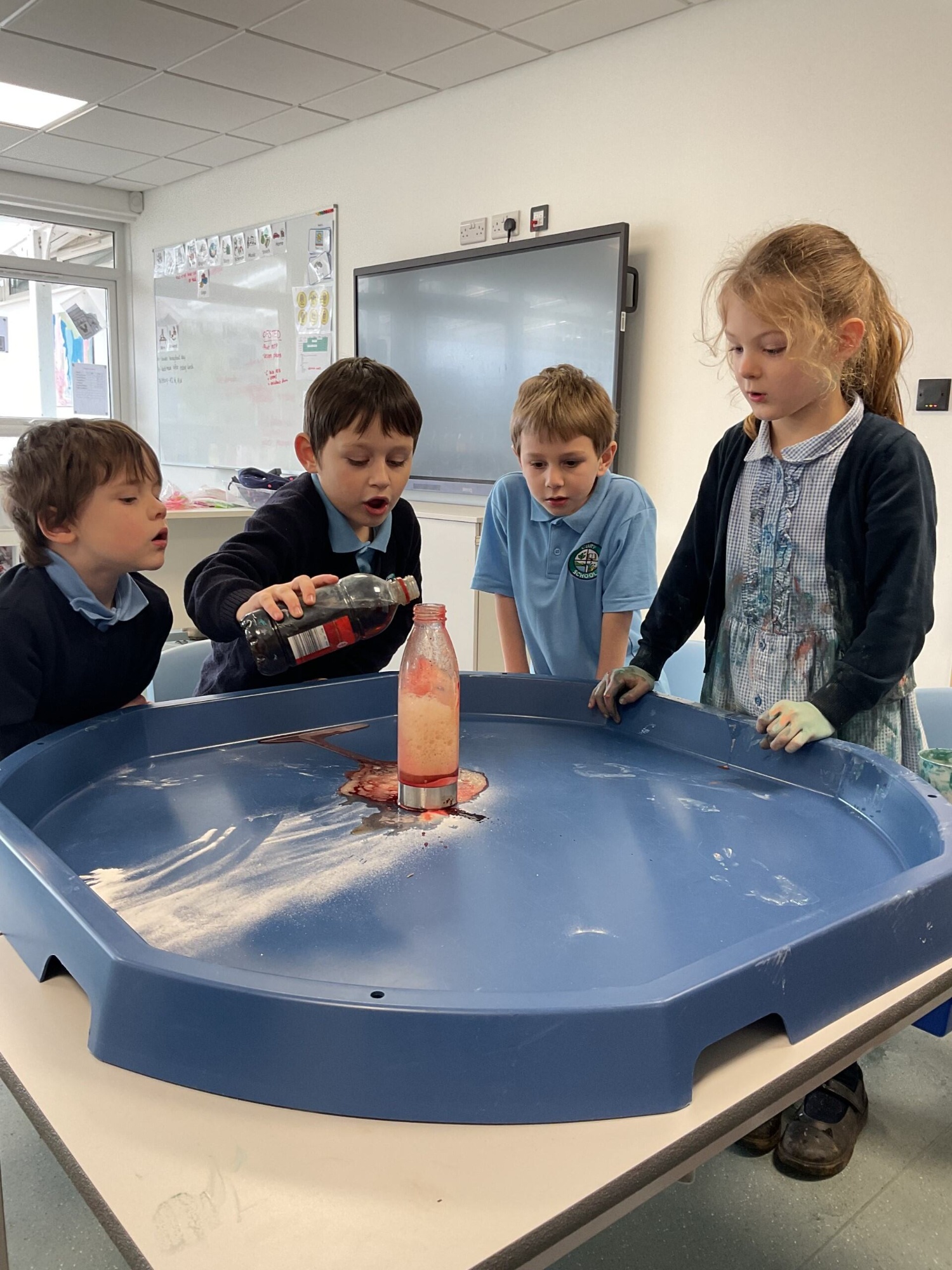Science
![]()

Cury’s Primary Science curriculum aims to develop a sense of excitement and curiosity about natural phenomena and an understanding of how the scientific community contributes to the past, present and future.
The curriculum aims for pupils to develop a complex knowledge of biology, chemistry and physics but also adopt a broad range of skills in working scientifically and beyond. The curriculum is inclusive and meaningful so all pupils may experience the joy of science and make associations between their science learning and their lives outside the classroom. Studying science allows pupils to appreciate how new knowledge and skills can be fundamental to solving arising global challenges.
The curriculum aims to encourage critical thinking and empower pupils to question the how’s and whys of the world around them.
The curriculum encourages:
-
A strong focus on developing knowledge alongside scientific skills across biology, chemistry and physics.
-
Curiosity and excitement about familiar and unknown observations.
-
Challenging misconceptions and demystifying truths.
-
Continuous progression by building on practical and investigative skills across all units.
-
Critical thinking, with the ability to ask perceptive questions and explain and analyse evidence.
-
Development of scientific literacy using wide-ranging, specialist vocabulary.
![]()
The implementation of the curriculum relates to how the learning is going to be delivered across the school, taking the intent of the learning and translating it into a progressive and effective curriculum. To meet the aims of the National curriculum for science and in response to the Ofsted research review: the keys strands have been identified:
Scientific knowledge and understanding of:
-
Biology: living organisms and vital processes.
-
Chemistry: matter and its properties.
-
Physics: how the world we live in ‘works.
-
Working scientifically: processes and methods of science to answer questions about the world around us.
-
Science in action: uses and implications of science in the past, present and for the future.
Cury’s curriculum is a spiral curriculum, with essential knowledge and skills revisited with increasing complexity, allowing pupils to revise and build on their previous learning. A range of engaging recall activities promotes frequent pupil reflection on prior learning, ensuring new learning is approached with confidence. The Science in action strand is interwoven throughout the curriculum to make the concepts and skills relevant to pupils and inspiring for future application. Cross-curricular links are included throughout each unit, allowing pupils to make connections and apply their science skills to other areas of learning.
Each unit is based on one of the key science disciplines: biology, chemistry and physics. The National curriculum content has been grouped into six key areas of science to show progression throughout the school:
-
Plants.
-
Animals, including humans.
-
Living things and habitats.
-
Materials.
-
Energy.
-
Forces, Earth and space.
Pupils explore knowledge and conceptual understanding through engaging activities and an introduction to relevant, specialist vocabulary. The working scientifically skills are integrated with conceptual understanding rather than taught discretely to provide frequent but relevant opportunities for developing scientific enquiry skills. The curriculum utilises practical activities that aid in the progression of individual skills and provide opportunities for full investigations.
Learning is adapted to ensure it is accessible for all pupils and all are given opportunities to stretch their learning. Staff are trained and have good subject knowledge in order to deliver high quality lessons.
![]()
The impact of Cury science curriculum can be constantly monitored through both formative and summative assessment opportunities. Each lesson includes guidance to support teachers in assessing pupils against the learning objectives and any relevant scientific enquiry skills. Furthermore, each unit has a unit quiz and a knowledge and skills catcher, which can be used at the beginning or end of the unit to provide a summative assessment. Opportunities for pupils to communicate using scientific vocabulary will also form part of the assessment process in each unit.
After implementing Cury’s Science curriculum, pupils should leave school equipped with the requisite skills and knowledge to succeed in science at Key stage 3. They will have the necessary tools to confidently and meaningfully question and explore the world around them and critically and analytically experience and observe phenomena. Pupils will understand the significance and impact of science on society. The expected impact of following the Cury Science curriculum is that pupils will:
-
Develop a body of foundational knowledge for the biology topics in the National curriculum: Plants; Animals, including humans; Living things and their habitats; and Evolution and inheritance.
-
Develop a body of foundational knowledge for the chemistry topics in the National curriculum: Everyday materials; Uses of everyday materials; Properties and changes of materials; States of matter; and Rocks.
-
Develop a body of foundational knowledge for the physics topics in the National curriculum: Seasonal changes; Forces and magnets; Sound; Light; Electricity; and Earth and space.
-
Evaluate and identify the methods that ‘real world’ scientists use to develop and answer scientific questions.
-
Identify and use equipment effectively to accurately gather, measure and record data.
-
Be able to display and convey data in a variety of ways, including graphs.
-
Analyse data to identify, classify, group and find patterns.
-
Use evidence to formulate explanations and conclusions.
-
Demonstrate scientific literacy through presenting concepts and communicating ideas using scientific vocabulary.
-
Understand the importance of resilience and a growth mindset, particularly in reference to scientific enquiry.








